Search titles
Displaying results 1 to 10 of 19.

A Genealogy of Bamboo Diplomacy »
The Politics of Thai Détente with Russia and China
Authored by: Jittipat Poonkham
Publication date: January 2022
In 1975, M.R. Kurkrit Pramoj met Mao Zedong, marking the eventual establishment of diplomatic relations and a discursive rupture with the previous narrative of Communist powers as an existential threat. This book critically interrogates the birth of bamboo (bending with the wind) diplomacy and the politics of Thai détente with Russia and China in the long 1970s (1968–80).
By 1968, Thailand was encountering discursive anxiety amid the prospect of American retrenchment from the Indo-Pacific region. As such, Thailand developed a new discourse of détente to make sense of the rapidly changing world politics and replace the hegemonic discourse of anticommunism. By doing so, it created a political struggle between the old and new discourses.
Jittipat Poonkham also argues that bamboo diplomacy – previously seen as a classic and continual ‘tradition’ of Thai-style diplomacy – had its origins in Thai détente and has become the metanarrative of Thai diplomacy since then. Based on a genealogical approach and multi‑archival research, this book examines three key episodes of Thai détente: Thanat Khoman (1968–71), M.R. Kukrit Pramoj (1975–76), and General Kriangsak Chomanan (1977–80). This transformation was represented in numerous diplomatic/discursive practices, such as ping‑pong diplomacy, petro‑diplomacy, trade and cultural diplomacy, and normal visits.
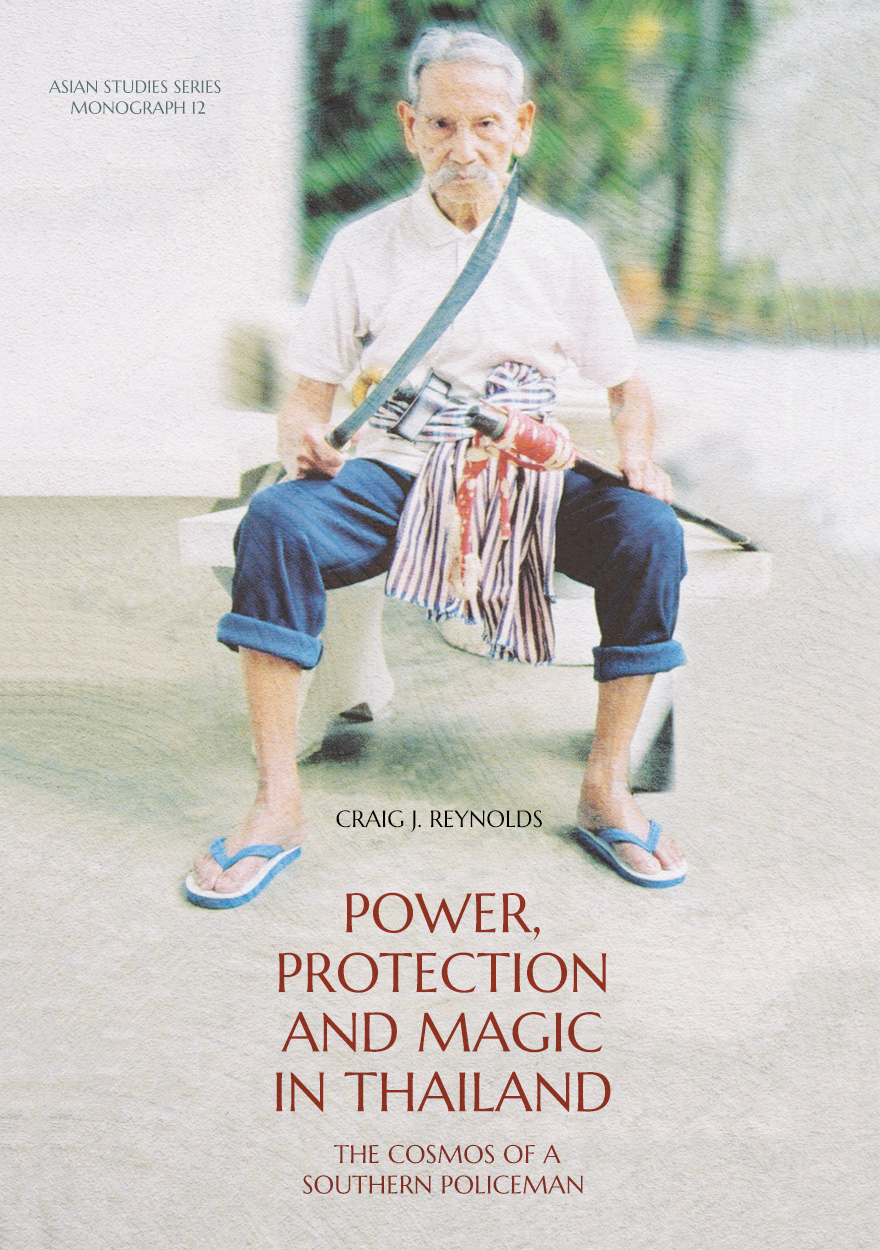
Power, Protection and Magic in Thailand »
The Cosmos of a Southern Policeman
Authored by: Craig J. Reynolds
Publication date: October 2019
This biographical study of an unusual southern policeman explores the relationship between religion and power in Thailand during the early twentieth century when parts of the country were remote and banditry was rife. Khun Phan (1898–2006), known as Lion Lawman, sometimes used rather too much lethal force in carrying out his orders. He was the most famous graduate of a monastic academy in the mid-south, whose senior teachers imparted occult knowledge favoured by fighters on both sides of the law. Khun Phan imbibed this knowledge to confront the risks and uncertainty that lay ahead and bolster his confidence and self-reliance for his struggle with adversaries.
Against the background of national events, the story is rooted in the mid-south where the policeman was born and died. Based on a wide range of works in Thai language, on field trips to the region and on interviews with local and regional scholars as well as the policeman’s descendants, this generously illustrated book, accompanied by short video clips, brings to life the distinctive environment of the lakes district on the Malay Peninsula.
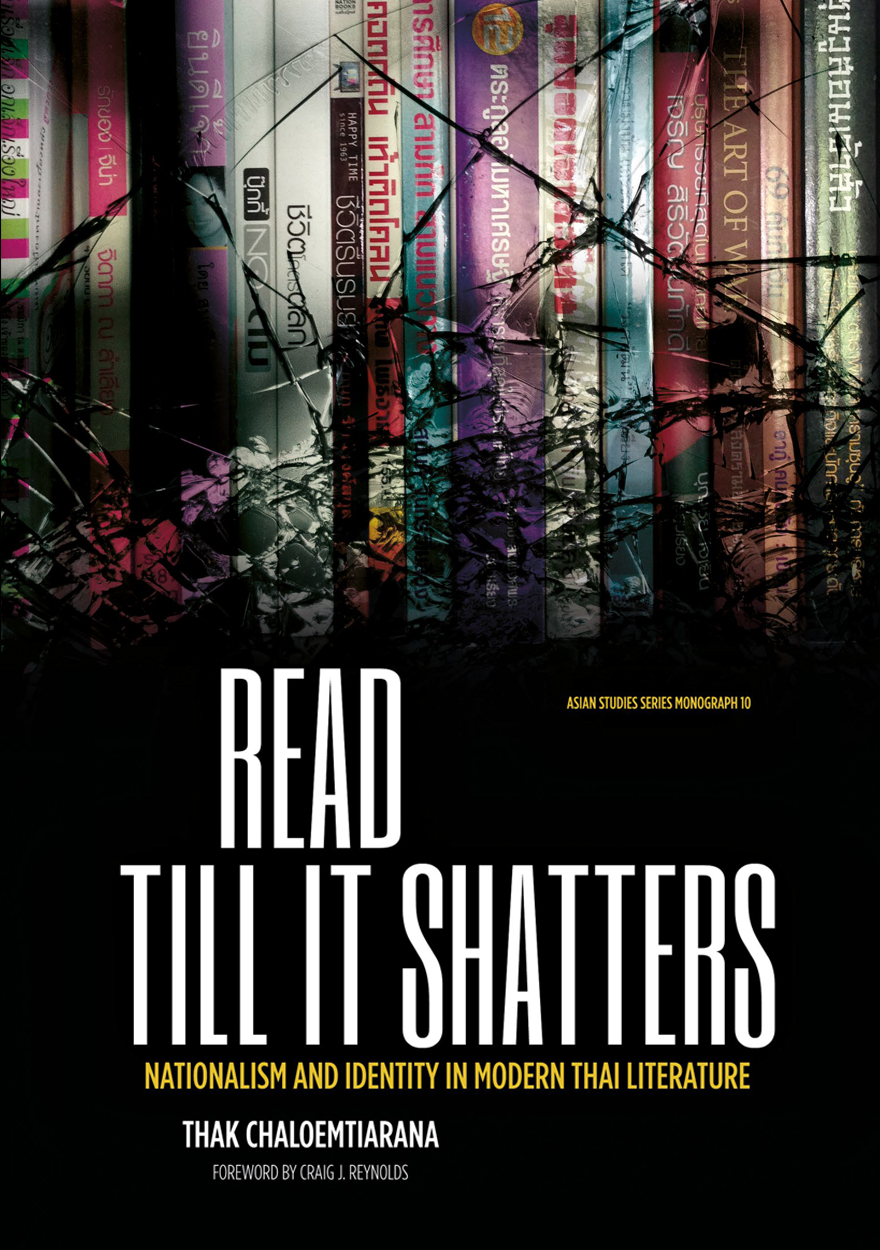
Read till it shatters »
Nationalism and identity in modern Thai literature
Authored by: Thak Chaloemtiarana
Publication date: August 2018
This book introduces readers to modern Thai literature through the themes of modernity, nationalism, identity and gender. In the cultural, political and social transformations that occurred in Thailand during the first half of the twentieth century, Thai literature was one of the vehicles that moved the changes. Taking seriously ‘read till it shatters’, a Thai phrase that instructs readers to take apart the text, to break it down, to deconstruct it, Thak Chaloemtiarana challenges the Thai literary canon from the margins and suggests ways of expanding and enriching it.
Thai literature is scarce in translation and requires the skills of a scholar fluent in Thai to comprehend it. Thak is a political scientist turned literary scholar who is bilingual in Thai and English and an avid reader of Thai fiction by authors up and down the social scale. Here he offers lively insights into his favourite literary genres with fresh readings of early Thai novels, Sino-Thai biographies and memoirs of the rich and famous.
‘Thak Chaloemtiarana is an inquisitive man. Late in his career he switched from politics to literature. In these chapters, he draws on a lifetime of reading about writers and writing in Thailand over the past century. He nods towards the usual big names—King Vajiravudh, Luang Wichit, Kulap Saipradit, Kukrit Pramoj—but spends more time on those found in the lesser visited stacks of the libraries, the secondhand bookstalls, and the shelf by the supermarket checkout. His themes are familiar—Thailand and the West, Thai nationalism, the Thai-Chinese, and women under patriarchy—but the angles of vision are original. With a cast ranging from motor-racing princes through sexy Egyptian mummies and a feminist serial murderer to starlets touting breast-enhancement techniques, this book educates, enlightens, and entertains.’
— Dr Chris Baker, Bangkok-based author with Pasuk Phongpaichit, A History of Ayutthaya (Cambridge 2017)

East Asia Forum Quarterly: Volume 10, Number 1, 2018 »
Publication date: March 2018
East Asia Forum Quarterly grew out of East Asia Forum (EAF) online, which has developed a reputation for providing a platform for the best in Asian analysis, research and policy comment on the Asia Pacific region in world affairs. EAFQ aims to provide a further window onto research in the leading research institutes in Asia and to provide expert comment on current developments within the region. The East Asia Forum Quarterly, like East Asia Forum online, is an initiative of the East Asia Forum (EAF) and its host organisation, the East Asian Bureau of Economic Research (EABER) in the Crawford School of Economics and Government in the College of Asia & the Pacific at The Australian National University.
Download for free
Not available for purchase

Global Allies »
Comparing US Alliances in the 21st Century
Edited by: Michael Wesley
Publication date: June 2017
The global system of alliances that the United States built after the Second World War underpinned the stability and prosperity of the postwar order. But during the 20th century, the multilateral NATO alliance system in Europe and the bilateral San Francisco alliance system in Asia rarely interacted. This changed in the early 21st century, as US allies came together to fight and stabilise conflicts in the Middle East and Central Asia. This volume presents the first-ever comparative study of US alliances in Europe and Asia from the perspectives of US allies: the challenges, opportunities and shifting dynamics of these fundamental pillars of order. This volume is essential reading for those interested in contemporary and future regional and global security dynamics.

New Worlds from Below »
Informal life politics and grassroots action in twenty-first-century Northeast Asia
Edited by: Tessa Morris-Suzuki, Eun Jeong Soh
Publication date: March 2017
In Asia today, the grand ideologies of the past have lost their power over the popular imagination. Even in many of the region’s democracies, popular engagement in the political process faces profound challenges. Yet amidst this landscape of political disenchantment, groups of ordinary people across Asia are finding new ways to take control of their own lives, respond to threats to their physical and cultural survival, and build better futures. This collection of essays by prominent scholars and activists traces the rise of a quiet politics of survival from the villages of China to Japan’s Minamata and Fukushima, and from the street art of Seoul and Hong Kong to the illegal markets of North Korea. Introducing an innovative conceptual framework, New Worlds from Below shows how informal grassroots politics in Northeast Asia is generating new ideas and practices that have region-wide and global relevance.
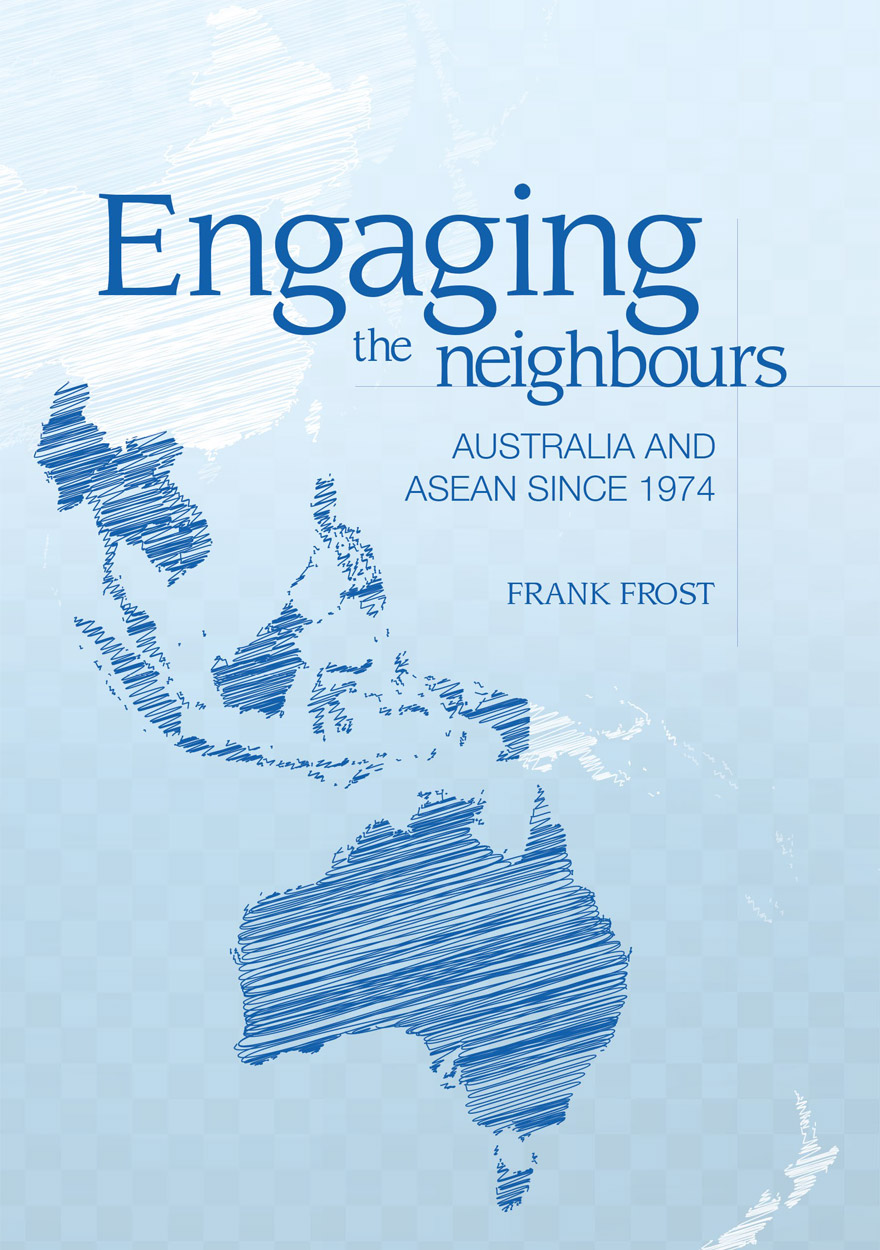
Engaging the neighbours »
Australia and ASEAN since 1974
Authored by: Frank Frost
Publication date: July 2016
From modest beginnings in 1967, the Association of Southeast Asian Nations (ASEAN) has become the premier regional institution in Southeast Asia. The 10 members are pursuing cooperation to develop the ‘ASEAN Community’ and also sponsor wider dialogues that involve the major powers. Australia has been interested in ASEAN since its inauguration and was the first country to establish a multilateral link with the Association, in 1974. Australia and ASEAN have subsequently engaged and cooperated on many issues of mutual concern, including efforts to secure an agreement to resolve the Cambodia conflict (signed in 1991), the initiation of the Asia-Pacific Economic Cooperation grouping (1989) and the ASEAN Regional Forum (1994), the conclusion of the ASEAN–Australia–New Zealand Free Trade Agreement (signed in 2008) and the development of the East Asia Summit (from 2005).
This book provides the first available detailed history of the evolution of Australia’s interactions with ASEAN. It assesses the origins and phases of development of Australia’s relations with ASEAN; the role ASEAN has played in Australian foreign policy since the 1970s; the ways in which the two sides have collaborated, and at times disagreed, in the pursuit of regional stability and security; and the key factors that will influence the relationship as it moves into its fifth decade.

East Asia Forum Quarterly: Volume 7, Number 4, 2015 »
Publication date: November 2015
East Asia Forum Quarterly grew out of East Asia Forum (EAF) online, which has developed a reputation for providing a platform for the best in Asian analysis, research and policy comment on the Asia Pacific region in world affairs. EAFQ aims to provide a further window onto research in the leading research institutes in Asia and to provide expert comment on current developments within the region. The East Asia Forum Quarterly, like East Asia Forum online, is an initiative of the East Asia Forum (EAF) and its host organisation, the East Asian Bureau of Economic Research (EABER) in the Crawford School of Economics and Government in the College of Asia & the Pacific at The Australian National University.
Download for free
Not available for purchase
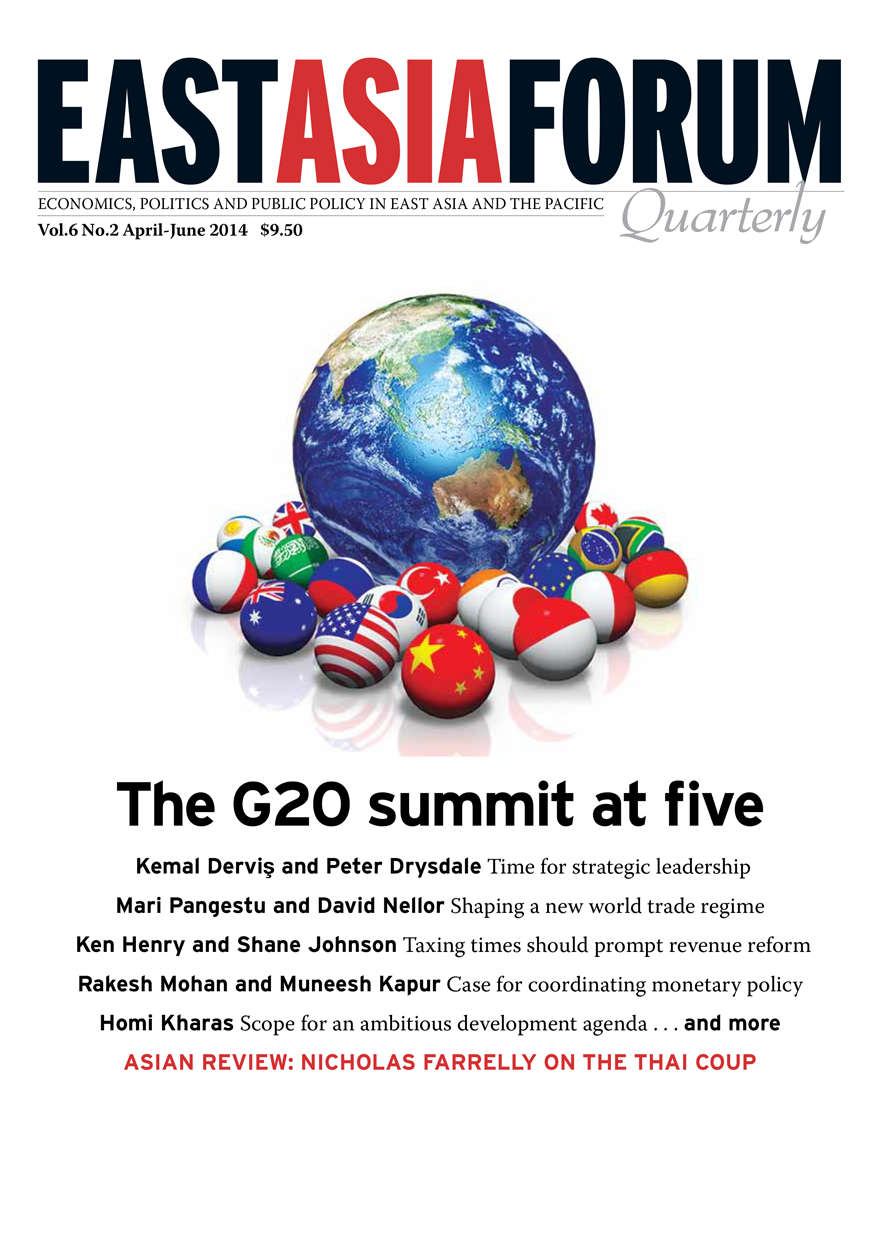
East Asia Forum Quarterly: Volume 6, Number 2, 2014 »
Publication date: June 2014
East Asia Forum Quarterly grew out of East Asia Forum (EAF) online, which has developed a reputation for providing a platform for the best in Asian analysis, research and policy comment on the Asia Pacific region in world affairs. EAFQ aims to provide a further window onto research in the leading research institutes in Asia and to provide expert comment on current developments within the region. The East Asia Forum Quarterly, like East Asia Forum online, is an initiative of the East Asia Forum (EAF) and its host organisation, the East Asian Bureau of Economic Research (EABER) in the Crawford School of Economics and Government in the College of Asia & the Pacific at The Australian National University.
Download for free
Not available for purchase
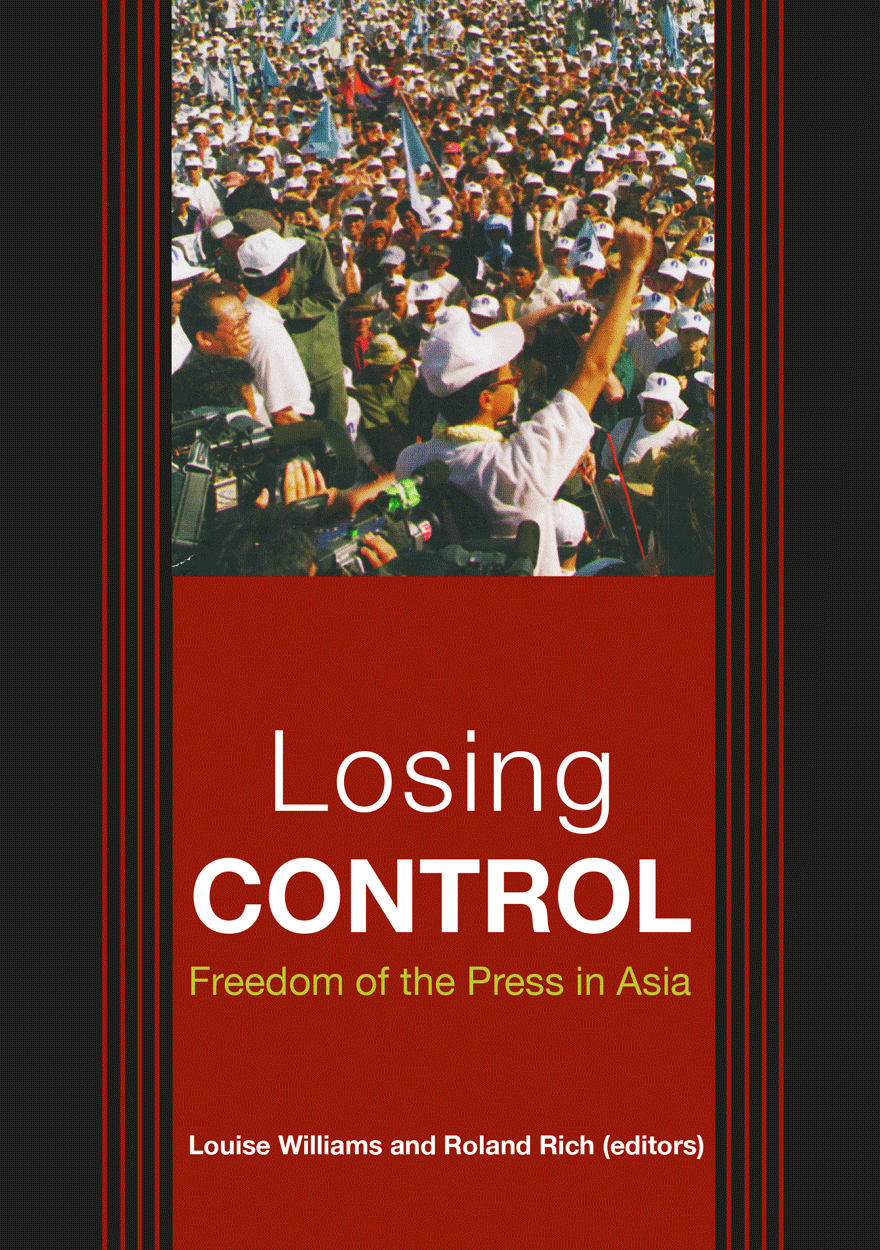
Losing Control »
Freedom of the Press in Asia
Edited by: Louise Williams, Roland Rich
Publication date: January 2014
‘A free press is not a luxury. A free press is at the absolute core of equitable development’ according to World Bank President James Wolfensohn. A free press is also the key to transparency and good governance and is an indispensable feature of a democracy. So how does Asia rate? In Losing Control, leading journalists analyse the state of play in all the countries of North Asia and Southeast Asia. From the herd journalism of Japan to the Stalinist system of North Korea, Losing Control provides an inside look at journalism and freedom of the press in each country. One conclusion—a combination of new technology and greater democracy is breaking the shackles that once constrained the press in Asia.
‘Brings together Asia’s best and brightest observers of the press.’
Hamish McDonald, Foreign Editor, The Sydney Morning Herald
‘A rare insiders’ view exposing the real dynamics behind social and political change in Asia.’
Evan Williams, Foreign Correspondent, ABC TV
‘A timely and necessary contribution to the debate over the quality of freedom in Asia.’
Geoffrey Barker, The Australian Financial Review



